This post is an annual “chess-book-I-have-read” recap, featuring a list of my favourite books I have read in 2020. You can check the best chess books I read in 2019 here.
Table of Contents
Introduction
2020 has been a very strange year in many regards. The global pandemic has affected multiple aspects of our lives. When it comes to books and reading, my habits have been no exception.
On one hand, I read a total of 24 chess books – 6 more than the previous year.
On the other hand, I have read only 21 non-chess books – a whooping 21 less (50% less) than in 2019.
There are several possible explanations I tried to use to rationalize this:
- Chess books are more demanding and time-consuming to read than non-chess books so they take a lot of time
- I used to read a lot while traveling to work via public transport. Once I started working remotely, I lost that habit.
- Being forced to stay home in the middle of a global pandemic and having no set obligations/lack of routine actually lead to me READING less, despite apparently having more time
Even though there is truth in all these claims, I am pretty convinced that the 3rd one was the major factor. I have read numerous articles of people claiming they had so many projects and plans they finally hoped to tackle when things started shutting down, only to experience a total lack of motivation when it comes to executing them.
This doesn’t necessarily only refer to reading. Music producers, artists, designers, writers, and even some chess players experienced the same effect, without clearly understanding what is happening. I think it is easy to underestimate the extent of the trauma we are all currently going through and how much it affects the tiniest details in our lives.
Of course, that is not to say my switch to working from home presented a challenge in itself. It is also a fact my habits and lifestyle haven’t quite been on point irrespective of the pandemic and that there is a lot of room for improvement.
But okay, that long digression aside, I did actually manage to increase the number of chess books I read compared to the last year. Out of those 24, I have singled out 10 titles that made the deepest impression on me and used them to assemble a list of best chess books 2020 and continue the tradition of yearly book write-ups for the second year in a row.
You can find the list below.
Hope you will enjoy it and find it useful.
Best Chess Books 2020: My Favourite Books I Read in 2020
Michiel Abeln – The Anand Files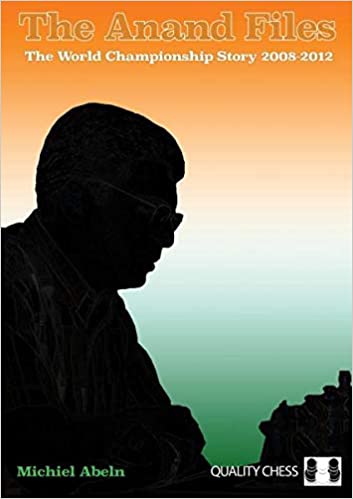
What is the book about?
The Anand Files is a fascinating dive into the behind-the-scenes events of three World Championship matches of Indian superstar Viswanathan Anand – against Vladirmir Kramnik in 2008, against Veselin Topalov in 2010 and against Boris Gelfand in 2012.
After spending 7 years (!) interviewing Anand’s seconds, analyzing games and weaving the pieces of the puzzle together, Abeln offers us an unique perspective into the process of preparing, conducting and ultimately winning the World Championship match.
Why have I included it on this list?
First of all, the book covers an important period of the modern chess history I haven’t yet seen documented in a single volume previously. It is not only account of the actual events that unfolded over the board, but also an account important off-the-board scenes. I found out1 that Magnus Carlsen played training games with Anand before the matches, that Anish Giri visited the camp, that Kramnik basically acted as Anand’s second during Anand’s match against Topalov, that Kasparov phoned and offered his help, etc.
But the book is much more than an ordinary „Historical account“. The aspect where it really shines and where Abeln’s years of research and writing have its tell is the characterization of the main protagonists of these matches. The book dissects how a World Championship Team functions before and during a World Championship match to almost ridiculous detail – how does the process of analyzing an opening work, how is the work organized, how many hours it entails, how many sleepless nights are there, what do the members eat, when do they eat, the dynamic between the team members, the atmosphere in the camp after losses.
And much more!
By taking the reader every single game of each of the three matches, Abeln exposes all the fears, doubts, tension and drama Anand’s team had to undergo and demonstrates that the human factor plays a crucial role– even when it comes to chess preparation.
When you also add that fact that chess content is of the highest quality and that Abeln basically presents us with a great deal of Anand’s preparation for the match and the fact that all profit made from the book sale goes to a charity, there really aren’t many reasons not to buy this book :).
Barry Hymer and Peter Wells: Chess Improvement: It’s All In The Mindset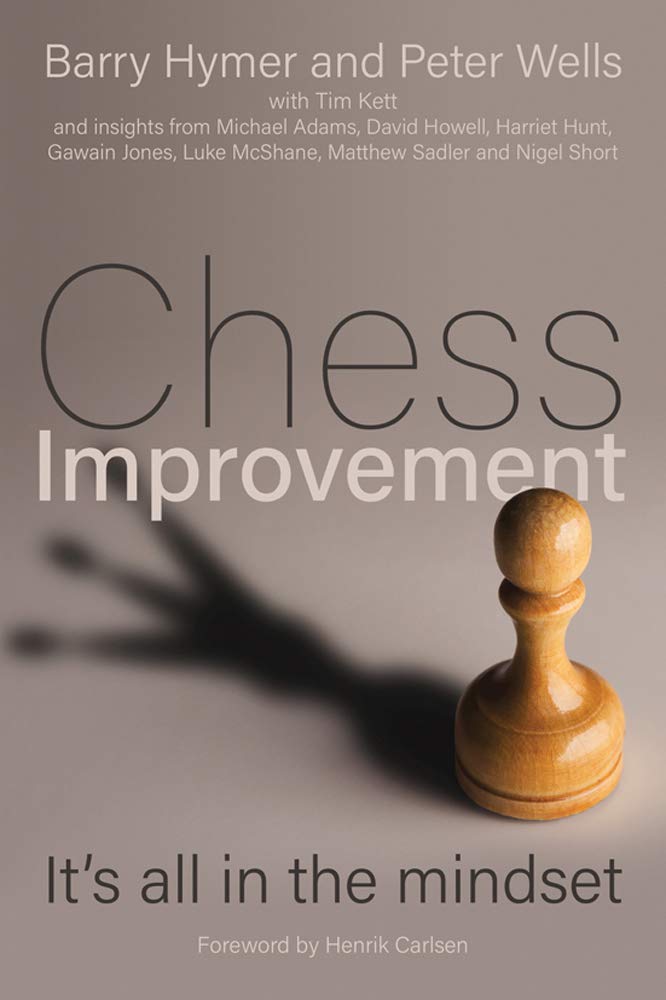
What is it about?
The book Chess Improvement: It’s All In The Mindset tackles the difficult and somewhat controversial topic of chess improvement.2 The core premise of the book is that the most important chess improvement tool is having what psychologists call the Growth Mindset.
Throughout 7 chapters, the authors tackle 7 key concepts related to developing and maintaining the Growth Mindset, such as motivation, the role of challenge, deliberate practice, dealing with failure, the social aspect of chess improvement, etc.
What makes this book stand apart from all the other literature on the similar topic 3 is that it is heavily science-based. Every chapter is split in two segments – in the first part dr. Barry Hymer 4 focuses on the theoretical foundation and in the second half, GM Peter Wells focuses on practical aspect and tries to convey how there theoretical concepts apply to various aspects of chess – mainly by sharing his own stories and real-life stories from other top Grandmasters from England.
Why have I included it on this list?
I first heard about this book when Chessable’s CEO David Kramaley recommended it and offered to send it to every Chessable’s team member.
Even though the topic of chess improvement has always been something I have regarded with an (un)healthy dose of cynicism and sarcasm, I was fortunately self-aware enough to realize I have a tendency to behave as an ignorant stubborn asshole way too often and that I could definitely more knowledge and reading on the topic, so I applied to get my own copy of the book as well. 5
I am very glad I decided to do so. I don’t recall when was the last time I stumbled upon a book that completely blew my mind and heavily influenced and changed my way of thinking.
First of all, there was a lot I didn’t know/wasn’t aware of the purely theoretical aspect.
Secondly, I liked the way Wells and Hymer write and explain scientific concepts. Even though the book does involve a lot of scientific terminology and quotes a fair share of scientific studies, it is very approachable, readable, clear and concise.
But lastly and, more importantly, the books’ practical value can’t be overestimated. It is full of useful information and practical tips for chess players, improvers, coaches and parents. I have started implementing some of its tips in my own training and coaching and was able to see the results almost instantly. 6
If you don’t know what is the best way of providing your child feedback as a parent, nurturing his/her love for the game, how is your attitude toward rating and losing typical of fixed mindset and what can you to develop growth mindset in you and people you tutor, you will find guidelines or straightforward answers inside.
I honestly think this is a revolutionary work. Even if certain things are „self-understandable“ 7 the simple fact that someone points them out so clearly and concisely is already a revelation in itself.
I would definitely recommend everyone (especially overly-ambitious parents and coaches) to get themselves a copy of this book.
I can only conclude this short review by inserting David’s quote with which I agree 100%:
„The distillation of the key lessons that learning science has for us has the potential to have a greater impact on chess than AlphaZero.
A seminal work.“
David Navara: My Chess World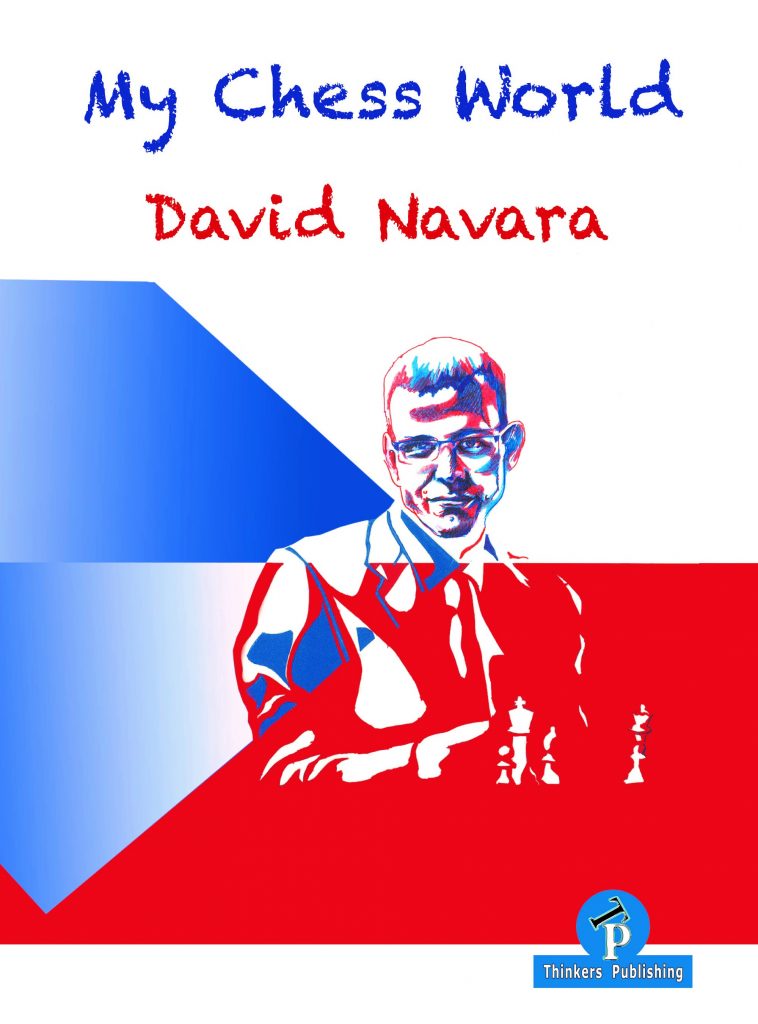
What is it about?
The book is a compilation of blog posts by Czech nr. 1, Grandmaster David Navara, in which he gives an account of his (tournament) life and provides a selection of his best/most interesting games starting from 2001 and ending in 2019.
Why have I included it on this list?
GM David Navara has established himself as one of the nicest and kindest grandmasters at the elite level. 8 When his book came out earlier this year, it raised a lot of noise so I couldn’t wait to get my hands on it and see whether the hype is justified.
As you might have guessed by now, I was not disappointed at all. In the context of game collections, there are two things that are very important to me:
- How interesting/extensive/elaborate the stories and „non-annotation“ parts of the books are to read
- Whether the games themselves are well-annotated and explained or they contain a forest of computer variations with very little to zero textual explanations
David Navara is a perfect example of a book that scores 10/10 in both of these categories. David is a very passionate and enthusiastic writer who not only provides us with a very detailed and personal account of every tournament and every game but also goes out of his way to annotate his games and make them very approachable for an average club player 9
I thoroughly enjoyed David’s glimpse into the life and regiment of a tournament player, his stories and his very open and direct way of expressing himself in a beautiful, almost poetic writing style.
Highly recommended.
Positional Decision Making by GM Boris Gelfand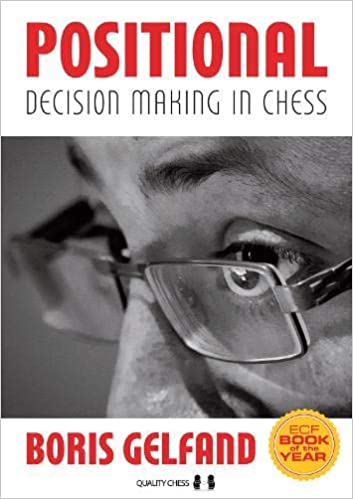
What is it about?
The book is the first in the series of books written by former World Championship Challenger and one of the strongest players of the last couple of decades, Israeli GM Boris Gelfand.
Throughout the series, Gelfand – with the help of his „ghost-writer“ GM Jacob Aagard of Quality Chess tries to cover different aspects of the chess game (Dynamic Decision Making, Technical Decision making) and increase the reader’s understanding by trying to explain how a strong player thinks.
The foundation of this book is Positional play and this book is basically a collection of annotated games, mostly played by Gelfand himself and his idol – Akiba Rubinstein. From the preface of the book:
„I am past the youthful need to prove to others that I understand chess, and ready to explain how chess is understood instead. So we have focused on how I think about chess, in the hope that it will help aspiring young players to improve, as well as bring joy to chess fans who simply want to enjoy the game more. And the cornerstone of my thought process was laid down by my role model, Akiba Rubinstein.“ ~ Boris Gelfand
Why have I included it on this list?
I first became aware of the book during the Legends of Chess tournament. During their Q&A sessions, several strong players 10 highly recommended Gelfand’s books. I also saw them recommended in other sources so I decided to order a copy and give it a try.
I haven’t regretted this decision ever since. There is a reason why this book got so much praise – it is absolutely incredible. Some of the things I like about Positional Decision making in chess are:
- Everything said about Navara’s book above is true here – Gelfand writes A LOT of text, gives a lot of context about each game and provides us with extensive and elaborate annotations.
- I don’t recall when was the last time I stumbled upon chess material so instructive. Gelfand wasn’t joking in the preface he wanted to convey his thinking process. He somehow manages to make games player on 2700 level easy and understandable to me without completely dumbing them down (when reading the book, I fully understood how he is able to play like that and never got any false hopes I am able to play like that, which I think is a difficult sweet-spot to find).
- Gelfand is very frank, direct and entertaining in his writing. I absolutely loved how he frequently dismisses computer chess engines and mocks „engine“ warriors among Internet kibitzers in a very genuine and hilarious manner.
- Gelfand’s enormous enthusiasm and love for the game is apparent on every page of the book. The amount of respect he pays his opponents, old masters, like Rubinstein and to the game as a whole is enormous.
I have purchased three subsequent books Gelfand (and GM Jacob Aagard) wrote and can’t wait to dive deep into them in 2021.
I can highly recommend you, the reader, to start doing the same :).
P.S. I have a confession to make. I have purchased and read a physical copy of this book, even though it is available on Chessable. I hope it won’t come up during my next performance reviews, but in case it does, I want you Chessable guys to know…
… that I am sorry!
The Complete Chess Swindler: David Smerdon
In a world full of opening, middlegame, strategy and endgame books, it is very rare to stumble on a book that deviates from the „norm“ and covers an uncommon and fresh topic in a witty and convincing manner.
The Complete Chess Swindler is one such book. In chess, „swindling your opponent“ usually means winning (or drawing) a completely losing position and is often dismissed as pure „luck“ and/or „gamble“. In his book, the author of the famous „Smerdon’s Scandinavian“ tries to demonstrate that there is much more to being a successful „swindler“ than being a lucker.
Through an abundance of examples, Smerdon tries to make an extensive study of the topic and detect key psychological and chess-related factors that cause people to fall for swindles and traits that make certain players very successful at swindling.
Smerdon also provides the reader with key lessons based on those observations that should help the reader become more successful at swindling. Smerdon claims it is a skill that can be trained and improved, not a matter of pure luck or accident.
Why have I included it on this list?
Because it is witty, uncommon, refreshing and abundant with entertaining and never-before-seen examples of chess players swindling their opponents in almost unbelievable situations.
Whether we are talking about unexpected stalemates, cunning traps, perpetual checks, fortresses or just surprising and beautiful tactics, this book has it all. When you combine this chess aspect with Smerdon’s entertaining way of writing, his pop culture references and the general „tongue-in-cheek“style present in the book, I can’t see how you can go wrong with buying this book.
P.S. Not only is this book also available on Chessable – I have actually “read” it 11 in its entirety on the platform.
I hope that it will be enough to redeem myself for the lapsus regarding the previous one!
Jennifer Shahade – Chess Bitch: Women in the Ultimate Intellectual Sport
In Chess Bitch, Jen Shahade takes us through a fascinating journey through the world of female chess and mixes her own experience together with stories with famous (and less famous) female chess players.
The book offers a unique insight in the “behind the chess tournament scenes” and talking about ups and downs of constant traveling, participating in tournaments and trying to strike the balance between fun and professionalism (partying and playing chess).
Jen tackles several important issues related to the position of females in chess, such as:
– Constantly present and widely accept sexism coming in many forms
– Cultural (and other) obstacles that prevent more women from participating (mainly through the lens of the lineage of successful Georgian chess players, stemming from a very traditional society)
– The role of female-only competitions and female-only titles 12
– Whether it is a good or bad thing that female chess players get attention partly due to their looks and her thoughts on some female chess players taking advantage of that
Why have I included it on this list?
After reading several great posts by Mr. Greg on the topic of women in chess on his blog at the beginning of 2020, I’ve realized how fallible my thinking process on this subject is and how ignorant and full of prejudices I am despite priding myself of being enlightened and progressive. So, I decided to get enlightened by another member of the Shahade family and read Jen’s book.
This book made me more aware of the extent of obstacles female chess players face, that I have been very ignorant toward the history of female chess players and that there is a lot of merit to the feminist “but you haven’t experienced this as a white male” argument.
The only downside is that the book was written in 2004. I would be extremely interested to hear your take on the last 15 years and to hear stories about the new generation (Yifan, Goryachkina, Ju Wenjun) and new times!
But despite this I don’t remember when was the last time I read a book with such interest and I would definitely recommend it to everyone.
Especially to all those angry men in the comment section of the lichess article titled Invisible Pieces: Women in Chess.
David Klass – Grandmaster: A Novel
Grandmaster: A Novel is a story about a high school boy who joins a chess club and gets invited to a father-and-son tournament, only to discover his father is a grandmaster who hasn’t played chess for more than 30 years (and who never told him that).
Throughout the book, we find out the reasons why he stopped and why he never told his son he was a chess player. The boy then manages to convince him to get back from his retirement and participate in a weekend-long parent-child tournament, where his father has to face his old nemesis and struggle with his ancient doubts and fears.
Why have I included it on this list?
I was very fond of this book.
It is by far my favourite chess novel and I found it much more readable and less pretentious than some other novels I read this year, including the famous Queen’s Gambit by Walter Trevis.
The main reason? The book doesn’t follow the modern „Netflix“ trend of making the main character or the plot as unique and special as possible. The boy Daniel Pratzer is not an alcoholic, orphan, uniquely gifted, depressed – or an outlier. He is also not involved in a grandiose „America vs Russia“ scheme, he doesn’t want to conquer the world.
He just wants to have a more engaged dad and participate in a „simple“ chess tournament. The development of the father-and-son relationship is a leitmotiv that stretches throughout the entire book and is done wonderfully.
I was also absolutely fond of writing – the dialogues are light-hearted and humorous and it is very easy to read and the book can be literally „Digested“ in a single day.
Finally, I liked how the book tracked and touched several other subjects related to growing up as a high schooler and related to the modern-day and age:
- being an outsider in high school and spending time around popular and more successful students
- being confused and shy around girls
- having a working parent who gets too engrossed in work to spend quality time with his children
- the strains and dangers of participating in chess tournaments and of the life of a professional chess player
- that eternal doubt whether your life would have turned out better if you made different decisions
It was really refreshing to read a book in which no special attempts to „sexify“ the characters or the plot were made.
Please Netflix, can you include this one in your catalog, as well?
Sasha Chapin -All the Wrong Moves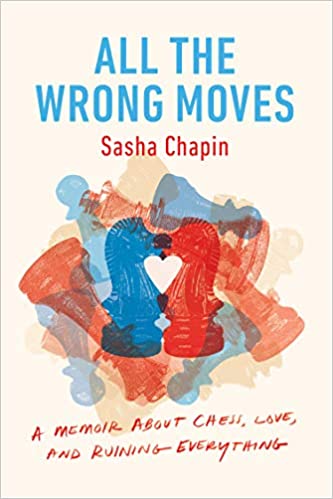
What is the book about?
When this book was published it caused quite a stir within the chess community (considering that the author wasn’t particularly well-known in chess circles). 13
It is a very fun and entertaining biographical read from the pen of a skilled freelance writer in which he talks about how he got infected with the chess virus somewhat late in his life and how it completely overtook his life for a couple of years.
Why I have included it on this list?
It was really fun and hilarious to read about events every chess player can find relatable. The author writes openly about his struggles and about the effect that the „chess virus“ had on his life in a very entertaining and relatable manner.
From doing an all-night blitz session after which you feel like a degenerate to being completely devastated after loss and feeling completely uneasy when facing young and promising players, we have been there all. Yet, not all of us have the same skill or courage to present it on paper.
Apart from his own struggles, the book also includes a fair share of anecdotes and funny stories that involve other personas from the chess world. Especially noteworthy is appearance of Ben Finegold whom Sasha hired to be his coach for a short period.
When you also consider that Chapin’s writing is beautiful and full of humour 14 , his impressions of the chess world are well worth reading.
Grigory Levenfish – Soviet Outcast: The Life and Games of Grigory Levenfish (translated by Douglas Griffin)
Soviet Outcast: The Life and Games of Grigory Levenfish is an autobiographical book by legendary (and somewhat forgotten) Soviet master Grigory Levenfish, translated by the great chess enthusiast David Griffin. 15
In the book, Levenfish talks about the key tournaments and moments of his career and analyses a number of his own games.
Why have I included it on this list?
It has to be mentioned that this book might not be everybody’s cup of tea. I personally found it incredible because I love reading about chess history – especially about the Soviet-era and long-forgotten Soviet masters, so purchasing this one quickly after it came out was a no brainer for me.
Levenfish is one of my favourite “tragic” heroes of the Soviet era (who got sidelined because of Botvinnik). I found his biography fascinating and the games very interesting, even though some of the evaluations (especially in more complicated positions) were not approved by modern computer engines.
Nevertheless, Levenfish’s annotations are elaborate, instructive and enjoyable and he manages to convey the spirit of times and describe how it was to live and play in the pre-Soviet times – and how to do so as an “outcast”.
A great book and big shoutout to Douglas for all the work he is doing!
David Shenk: The Immortal Game: A History Of Chess
Quite simply, this is a comprehensive attempt to provide an overview of chess history, beginning from its early origins in ancient Persia, until today.
Why have I included it on this list?
Even though I read a lot about chess and chess history, in 2020 I realized I have never read anything about the overall history of our game and that I have quite a few ‘holes’ in my knowledge in that regard.
That is why, this year, I finally decided to change it and searched for a good book on the history of chess. After some research, I stumbled upon this one.
There are several reasons I am very fond of this book. First of all, David Shenk is very enthusiastic about the game and this enthusiasm is radiating through his writing (especially in the concluding, Coda and Appendix sections of the book).
Secondly, the book is extremely interesting. Even if we disregard the fact I had big ‘holes’ in my knowledge, a lot of what I read was new to me and I really had a feeling the book taught me a lot.
Last but not least – the book was full of sources on every other step, from ancient sources to the 20th-century news articles. It is incredible how much it gives to its credibility when you know that every statement/historic claim can be backed by concrete evidence.
Sure, there are still some sources I found debatable (e.g. when talking about Rubinstein’s mental state, the author refers to Bill Wall’s website. 16
But despite those minor trifles, I found the book thoroughly enjoyable and would recommend it to everyone – especially to people with affiliation toward the chess history
- Or reminded myself.
- Quite shocking, I know.
- Which is not abundant, to begin with
- A renowned psychologist and one of the recent Chessable employees :)
- Not to mention refusing a gift from your CEO is not a move you should be doing light-heartedly :P
- Not major results, but certain positive reactions from my students or shift in my thinking that made me reignite part of the passion for chess anew. Of course, big changes can’t happen due to a single tip overnight.
- Such as „Obsessing over your rating and playing constantly the same opening because you fear losing is not beneficial for your chess and is a trait of a fixed mindset“
- Please spare me of all the BuT hE wAs NeVeR tHe ElItE comments, it is true he was never a steady number of the world top 10, but anyone who has a peak rating of almost 2750 counts as elite in my book.
- As apparent from the number of pages – 611.
- Kramnik and/or Svidler, I think
- Trained using the Chessable’s MoveTrainer technology
- I entered into a heated Twitter debate about the need for the latter prior to reading this book. If I learned one thing from Shahades, it is that me discussing that topic and pointing out my opinion hasn’t really helped anybody
- He was even a guest on Perpetual Chess Podcast
- It is very obvious he has been practicing his craft for quite some time
- Who runs a blog devoted to the Soviet chess history where he translates a ton of material published in the Soviet Union. He is also very active on twitter and you can also listen to him in an episode of everyone’s favourite Perpetual Chess Podcast
- And we all know chess websites – ESPECIALLY CHESS BLOGS – should be taken cum grano salis.

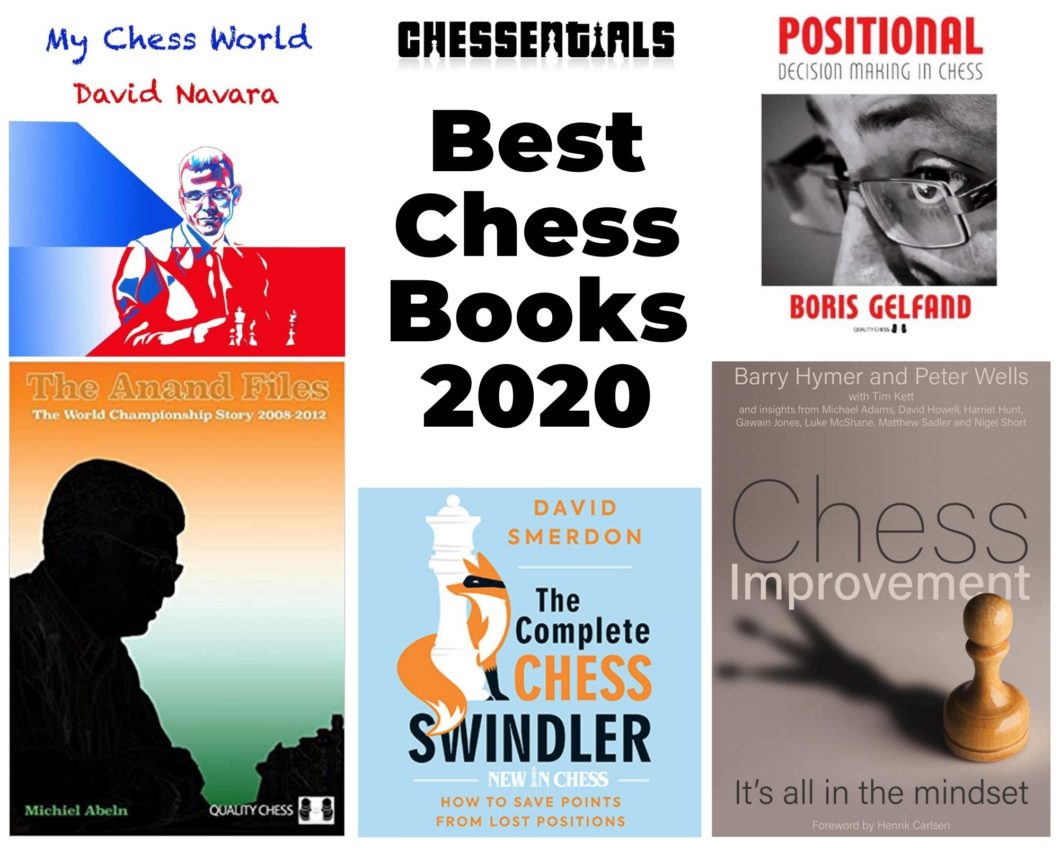
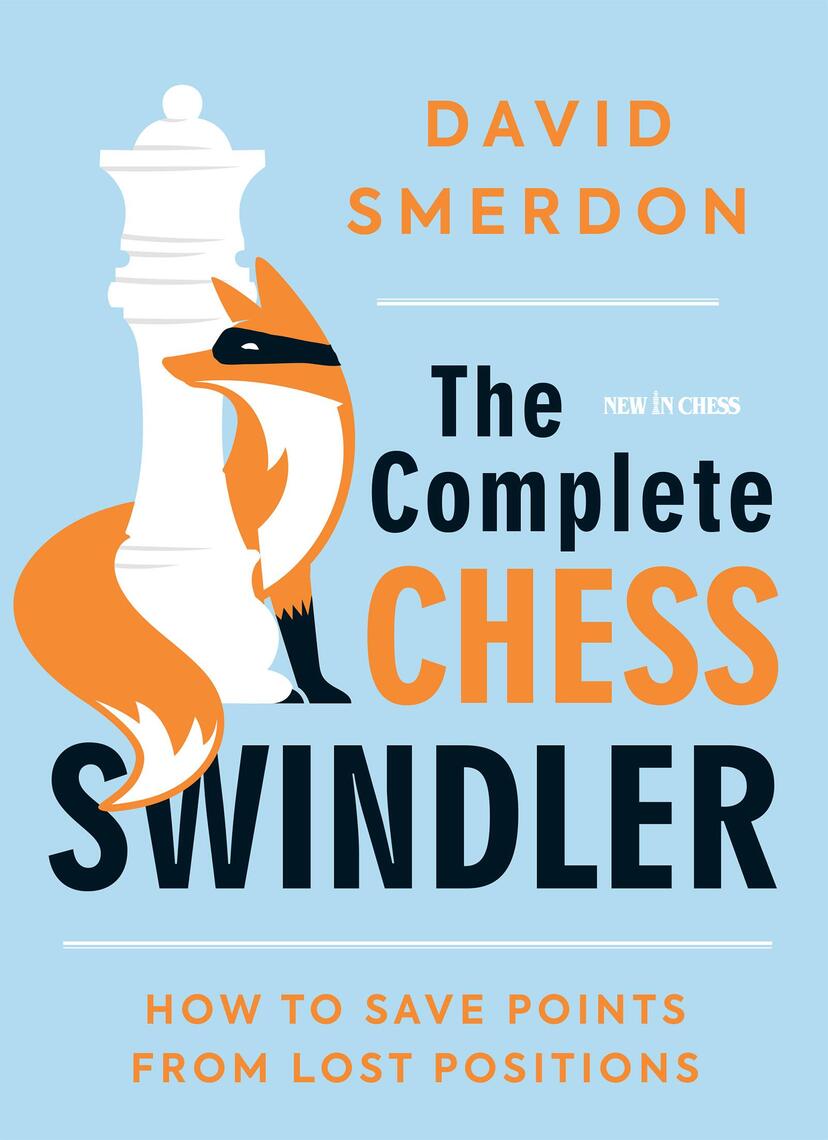
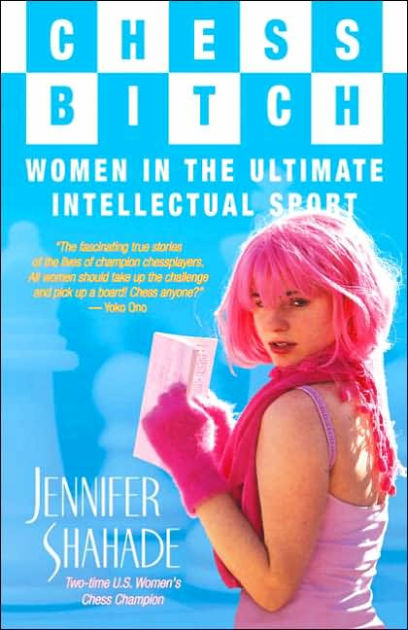
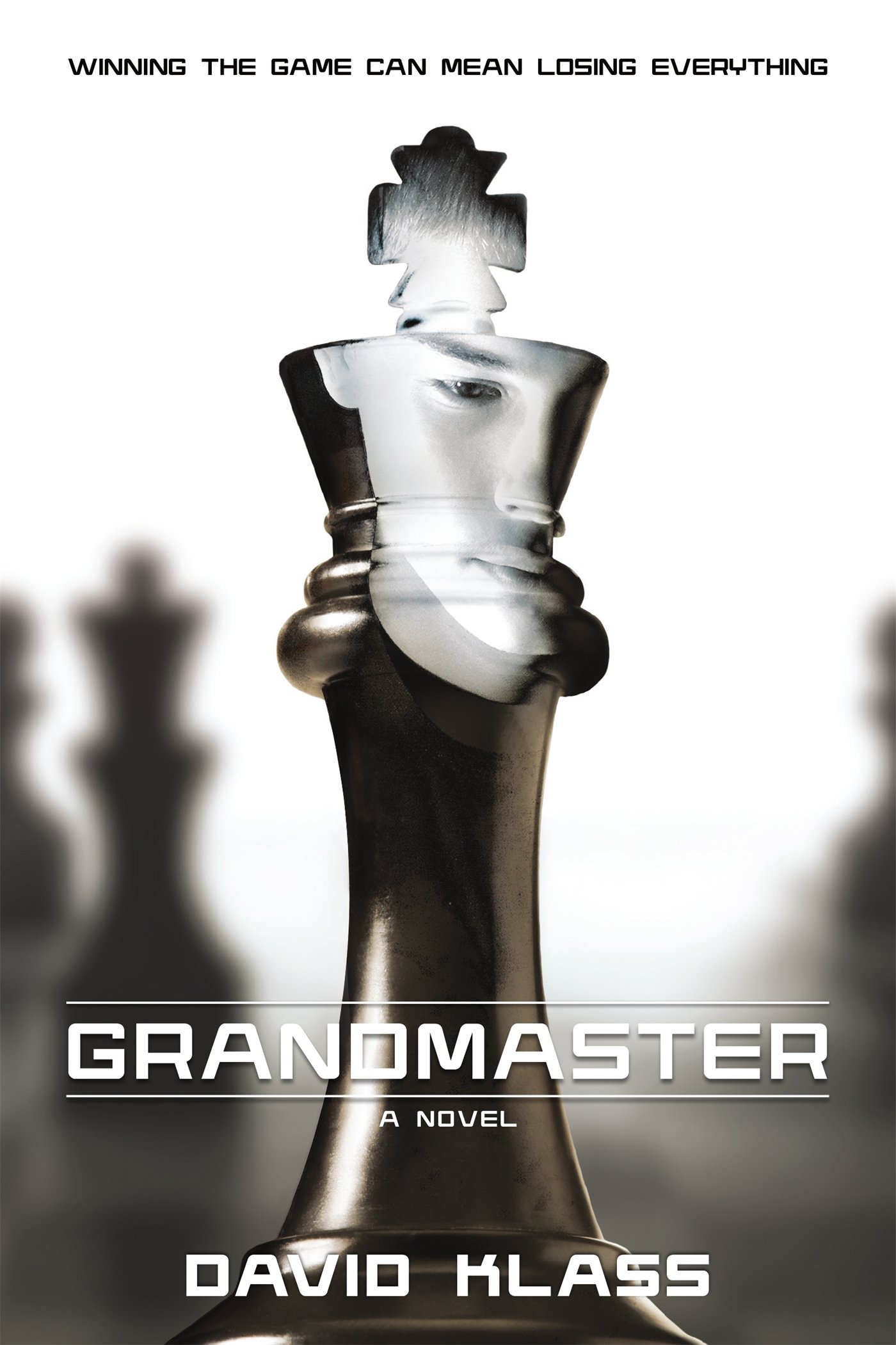
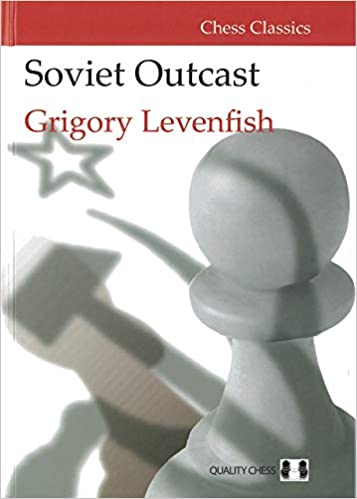
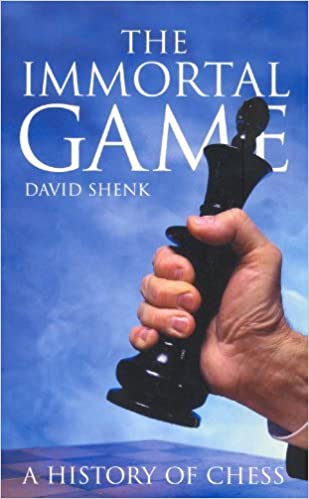
I’m a parent who wanted to introduce chess, to my child. Didn’t know how to do this, but I found this book – net-boss.org/chess-puzzles-for-kids-by-maksim-aksanov. The Author, Maksim Aksanov, wrote this book with the help of his 6 year old daughter. Through working with her, he could see which elements of the game are the most difficult for a child. It worked very well for us!